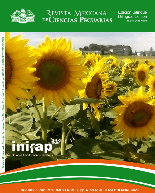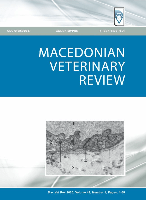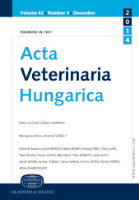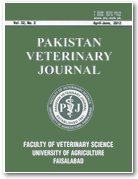
Acta Veterinaria Eurasia
Scope & Guideline
Breaking barriers in veterinary research and education.
Introduction
Aims and Scopes
- Veterinary Pathology and Disease Management:
The journal emphasizes research on the diagnosis, pathology, and management of diseases affecting various animal species, including companion animals and livestock. - Animal Nutrition and Feed Additives:
A significant focus is placed on studies related to animal nutrition, including the evaluation of feed additives and their effects on growth performance and health. - Public Health and One Health Approach:
Research addressing the intersection of animal health and public health, particularly zoonotic diseases and their implications for human health, is a core area of the journal. - Surgical and Clinical Veterinary Practices:
The journal features studies on surgical techniques, clinical outcomes, and advancements in veterinary practice that enhance animal welfare. - Animal Behavior and Welfare:
Research exploring the behavioral aspects of animals in various environments, as well as welfare assessments, is a consistent theme in the journal. - Environmental and Biosecurity Studies:
The journal includes studies on environmental impacts on animal health, biosecurity measures, and risk assessments in veterinary practices.
Trending and Emerging
- Impact of COVID-19 on Veterinary Practices:
Research examining the effects of the COVID-19 pandemic on veterinary services and practices has emerged as a significant theme, highlighting the resilience and adaptability of the veterinary profession during crises. - Microbiome and Gut Health Studies:
The exploration of gut microbiota in various animal species has gained traction, with studies focusing on its implications for health, nutrition, and disease resistance. - Application of Digital Technologies in Veterinary Medicine:
There is an increasing trend towards studies that assess the integration of digital technologies and telemedicine in veterinary practice, reflecting the need for innovation in service delivery. - Zoonotic Diseases and Public Health:
An upward trend in research related to zoonotic diseases and their implications for public health underscores the growing recognition of the One Health approach in veterinary research. - Sustainable Animal Production Practices:
Research focusing on sustainable practices in animal production, including environmental impacts and animal welfare considerations, is becoming more prominent in recent publications.
Declining or Waning
- Traditional Breeding Practices:
There has been a noticeable decline in publications focusing on traditional breeding practices, possibly due to a shift towards genetic and genomic studies that explore modern breeding techniques. - Non-Infectious Diseases in Livestock:
Research on non-infectious diseases, such as metabolic disorders in livestock, appears to be less prominent compared to infectious disease studies, reflecting a potential shift in research funding and interest. - Basic Anatomy and Morphology Studies:
There seems to be a waning interest in basic anatomical and morphological studies, as more applied and clinical research takes precedence in the journal.
Similar Journals

Revista Mexicana de Ciencias Pecuarias
Innovating Animal Sciences for a Healthier FutureRevista Mexicana de Ciencias Pecuarias, published by INIFAP-CENID PARASITOLOGIA VETERINARIA, is a prominent open-access journal since 2010 that caters to the fields of Animal Science and Veterinary Medicine. Based in Mexico, this journal addresses critical issues in animal health, production, and welfare, making it instrumental for researchers, professionals, and students seeking to advance their knowledge and practices. With an impact factor that reflects its growing influence, particularly in the Q3 quartile rankings in both Animal Science and Zoology as well as Veterinary (Miscellaneous) categories, the journal provides a vital platform for the dissemination of innovative research and findings. Additionally, its Scopus Ranks position highlights its role in publishing significant contributions to the fields of Veterinary Science and Agricultural Biology. The journal fosters a collaborative learning environment through its open-access model, ensuring that valuable insights are accessible to a wide audience. For those committed to enhancing animal well-being and advancing veterinary practices, the Revista Mexicana de Ciencias Pecuarias stands as a key resource through its rigorous peer-reviewed publication process and commitment to scientific excellence.

JAPANESE JOURNAL OF VETERINARY RESEARCH
Fostering collaboration for the future of veterinary practice.The Japanese Journal of Veterinary Research, published by Hokkaido University, is a pivotal resource in the field of veterinary science, focusing on a wide array of topics that contribute to the advancement of veterinary research. Established in 1965, this esteemed journal has been at the forefront of disseminating innovative research findings and methodologies crucial for animal health and welfare in Japan and beyond. With an ISSN of 0047-1917 and recognized in the Q3 quartile of veterinary journals, it serves as a significant platform for both established researchers and emerging scholars, fostering a collaborative environment that aims to elevate veterinary practice. Although it operates under a traditional subscription model without open access, the journal's selectivity and rigorous peer-review process enhance the quality of published works, attracting attention from global audiences. Based in Sapporo, Japan, the journal continually strives to provide a vital forum for discussions that shape the future of the veterinary profession.

Macedonian Veterinary Review
Connecting researchers to elevate veterinary practices.Macedonian Veterinary Review is a prominent open access journal dedicated to advancing the field of veterinary science. Published by SCIENDO, this journal provides a crucial platform for researchers, professionals, and students to share their findings and insights related to veterinary practices, animal health, and welfare. Established with the aim of fostering knowledge exchange since its inception in 2010, the journal has made significant strides, evidenced by its 2023 Scopus ranking of #131 out of 194 in the General Veterinary category, placing it in the 32nd percentile among its peers. The journal's open access model enhances the dissemination of knowledge, ensuring that vital research reaches a wider audience, thereby addressing key issues in the veterinary landscape. With its base in Macedonia and a commitment to high-quality scholarly contributions, the Macedonian Veterinary Review is an essential resource for anyone involved in veterinary research and practice, reflecting the ongoing developments and challenges in this critical field.

Thai Journal of Veterinary Medicine
Championing research for animal welfare and public health.Thai Journal of Veterinary Medicine, published by Chulalongkorn University, serves as a vital resource for researchers, practitioners, and students in the field of veterinary science. With an ISSN of 0125-6491, the journal has been providing a platform for the dissemination of original research and reviews since its inception, with a focus on advancing veterinary practice and animal health in Thailand and the broader Southeast Asian region. The journal is recognized in the Scopus database, currently ranked in the Q4 category for Veterinary (miscellaneous), reflecting its commitment to quality despite being in a highly competitive space. The scope of the journal encompasses a wide array of topics pertinent to veterinary medicine, ensuring accessibility to diverse veterinary disciplines. While the journal currently does not offer an open-access option, it remains dedicated to contributing valuable knowledge and insights to the veterinary community, supporting the improvement of animal welfare and public health initiatives in the region. As it continues to publish until 2024, the Thai Journal of Veterinary Medicine invites contributions that align with its objectives of fostering scholarly discourse and advancing veterinary research.

Iranian Journal of Veterinary Research
Advancing Veterinary Science for a Healthier TomorrowWelcome to the Iranian Journal of Veterinary Research (IJVR), a prestigious platform dedicated to advancing the field of veterinary science. Published by Shiraz University, this journal plays a pivotal role in disseminating high-quality research findings amid a vibrant academic community. With its ISSN 1728-1997, and a convergence of studies from 2008 to 2024, IJVR serves as an essential resource for veterinarians, researchers, and students interested in Animal Science and Zoology. Recognized in the Q3 quartile for both Animal Science and Veterinary categories, it holds a respectable position with Scopus rankings placing it in the 54th percentile among general veterinary journals. Although it currently lacks an open access model, the journal ensures that cutting-edge veterinary research is presented with rigor and relevance, fostering knowledge that contributes to animal health and welfare. With its strategic focus on innovative methodologies, clinical practices, and the biological sciences, the IJVR is set to become your go-to source for critical advancements in veterinary research.

ACTA VETERINARIA BRNO
Connecting Researchers to Enhance Global Animal HealthACTA VETERINARIA BRNO is a distinguished journal published by the Veterinární a farmaceutická univerzita Brno in the Czech Republic, focusing on innovative and scholarly research in the field of veterinary sciences. With an established history dating back to 1974, this journal has evolved to maintain its relevance in contemporary veterinary research, as evidenced by its inclusion in Scopus and a respectable Q3 rank in the miscellaneous veterinary category. Despite operating under traditional access models, ACTA VETERINARIA BRNO remains a vital resource for researchers and practitioners seeking to advance their understanding of veterinary medicine and related disciplines. With its commitment to publishing high-quality, peer-reviewed articles, the journal serves as a crucial platform for disseminating significant findings, thereby contributing to the enhancement of animal health and welfare globally.

Revista de Investigaciones Veterinarias del Peru
Connecting Insights for Global Animal HealthRevista de Investigaciones Veterinarias del Peru, published by UNIV NACIONAL MAYOR SAN MARCOS, stands as a pivotal resource within the field of veterinary sciences. With its ISSN 1682-3419 and E-ISSN 1609-9117, this journal aims to publish innovative research contributing to the advancement of veterinary practices and animal health. Since its inception in 1999, it has fostered an academic platform for professionals and researchers alike to share findings that are crucial for understanding and improving animal welfare in Peru and beyond. Although currently positioned in the Q3 category of Veterinary (miscellaneous) and ranked #163 out of 194 in the Scopus database, the journal's commitment to quality research and open access to veterinary knowledge continues to attract submissions and readership from a diverse audience. As it moves forward into 2024, the Revista de Investigaciones Veterinarias del Peru remains dedicated to disseminating critical insights that promote evidence-based practices in the veterinary field, stimulating further research and collaboration across continents.

ACTA VETERINARIA HUNGARICA
Connecting researchers to enhance veterinary excellence.ACTA VETERINARIA HUNGARICA is a prestigious academic journal published by AKADEMIAI KIADO ZRT, dedicated to the diverse field of veterinary science. With a history spanning over three decades since its inception in 1983, this journal provides a platform for the dissemination of high-quality research, clinical studies, and reviews that contribute to advancing knowledge in veterinary medicine and animal health. Based in Hungary, it has built a respectable reputation, reflected in its Scopus ranking, where it occupies the 84th position out of 194 in the General Veterinary category, placing it within the 56th percentile. Although the journal is not open access, it continues to attract a global audience of researchers, professionals, and students who are keen on exploring advancements in veterinary science as it converges towards its upcoming year of 2024. Readers will find valuable insights that foster innovation and improve animal care practices across various settings, making ACTA VETERINARIA HUNGARICA an essential resource for anyone involved in the veterinary field.

EGYPTIAN JOURNAL OF VETERINARY SCIENCE
Elevating standards in veterinary medicine and animal care.Welcome to the Egyptian Journal of Veterinary Science, a pivotal publication dedicated to advancing the field of veterinary science, particularly within the unique context of Egypt and the surrounding regions. Published by the Natl Information Documentation Centre, this journal has been a key scholarly resource since its inception in 1977, focusing on diverse aspects of veterinary medicine, including animal health, nutrition, and management practices. With an impressive editorial commitment and a wide scope covering animal science, equine studies, food animals, and small animal veterinary practice, the journal stands as a critical platform for researchers and professionals alike. While currently categorized in Q4 for Animal Science and Zoology, and achieving Q3 rankings in several other veterinary subfields, it serves as a vital avenue for disseminating innovative research and practical insights. Access to the latest findings and case studies aims to foster improved veterinary practices and enhance animal welfare standards. As we navigate the complexities of veterinary science, the Egyptian Journal of Veterinary Science remains an essential tool for those committed to the health and welfare of animals across various disciplines.

PAKISTAN VETERINARY JOURNAL
Championing excellence in veterinary research since 2009.Pakistan Veterinary Journal (ISSN: 0253-8318, E-ISSN: 2074-7764) is a leading peer-reviewed academic journal published by the University of Agriculture, Faculty of Veterinary Science, situated in Faisalabad, Pakistan. Since its inception, the journal has embraced an Open Access policy, facilitating the dissemination of vital research findings to a global audience and enhancing the visibility of veterinary science. With an impressive Q1 ranking in the veterinary miscellaneous category, the journal ranks #27 out of 194 in the veterinary general field according to Scopus, placing it in the top 14% of the discipline. The scope of the journal encompasses a wide array of topics relevant to veterinary medicine, ensuring that it serves as an essential resource for researchers, professionals, and students alike. By providing a platform for high-quality research from 2009 to 2024, the Pakistan Veterinary Journal continues to play a pivotal role in advancing veterinary science, promoting collaboration among scholars, and addressing contemporary challenges in animal health and welfare.